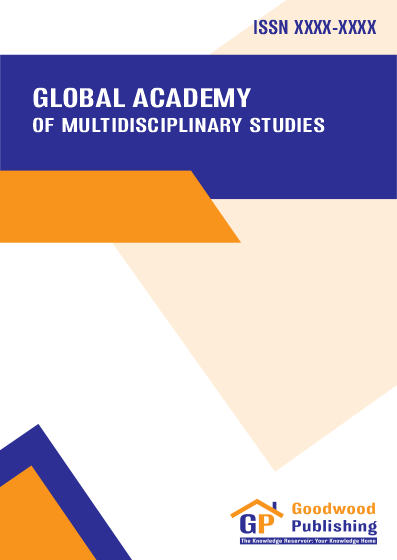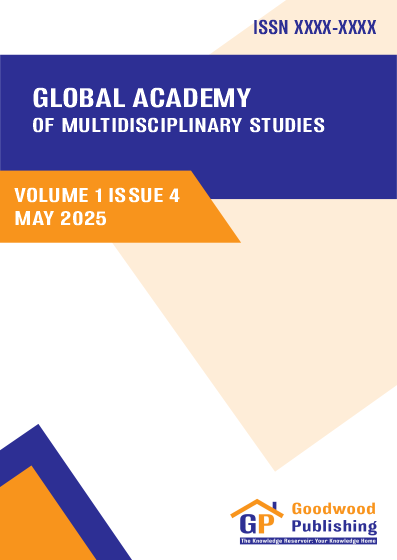Global Academy of Multidisciplinary Studies, published by Goodwood Publishing, is an online, peer-reviewed, open access scholarly journal dedicated to publishing high-quality, critical, and original research across diverse fields of study. The journal serves as a platform for researchers, academics, and practitioners to share innovative ideas, empirical findings, and theoretical advancements that contribute to the development of multidisciplinary knowledge.
We welcome a wide range of manuscript types, including original research articles, review articles, book reviews, case studies, and critical discussions. The journal particularly encourages works that integrate multiple disciplines, address complex real-world problems, and offer insights that advance both theoretical frameworks and practical applications.
By fostering intellectual exchange across disciplines, Global Academy of Multidisciplinary Studies aims to bridge the gap between theory and practice, stimulate scholarly debate, and support the dissemination of knowledge to a global audience.
Articles
The role of Jadid theater in the development of youth spirituality
The theory of developing students’ communicative competence based on the Pirls International Assessment Program
The influence of the e-catalogue system on fraud prevention in goods and services procurement in the regional government of Mimika Regency
Strengthening social responsibility among students in New Uzbekistan through reforms and achievements
Solutions for the concrete readymix supply shortage on projects in the New Capital (IKN) of Indonesia

Global Academy of Multidisciplinary Studies
Published by Goodwood Publishing, the Global Academy of Multidisciplinary Studies (GAMS) is a peer-reviewed and open-access scholarly journal that publishes high-quality, original research, review articles, case studies, book reviews, and critical discussions across a wide range of disciplines. The journal serves as a platform for academics, researchers, and practitioners to present innovative ideas, empirical findings, and theoretical contributions that foster cross-disciplinary dialogue and knowledge integration.
The scope includes but is not limited to: Social Sciences, Business and Economics, Education, Law, Arts and Humanities, Science and Technology, Health Sciences, and Environmental Studies.


 Google Scholar
Google Scholar Garuda
Garuda Sinta
Sinta